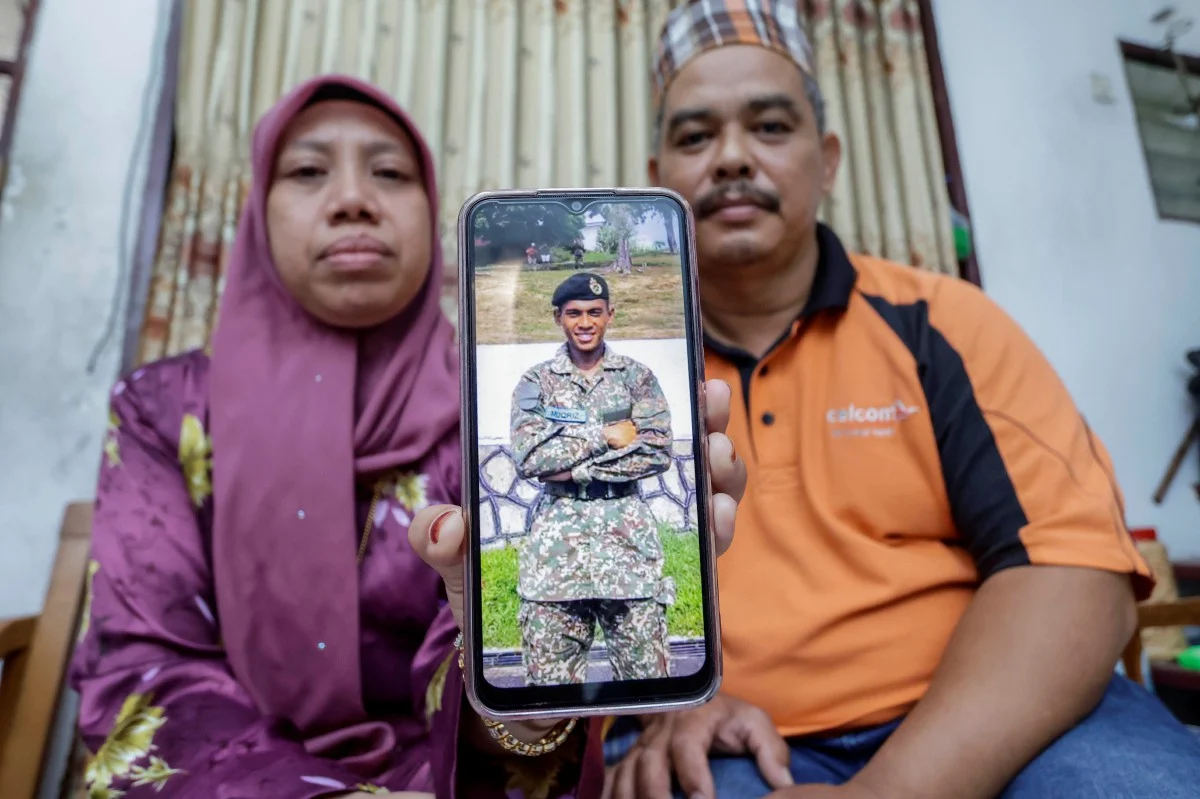
Protecting the lives of our military cadets: A call for accountability and change
By Chai Jie Yang

IT is deeply tragic that once again, we face the loss of a young military life. Private Muhammad Muqriz Aseri’s death is part of a troubling pattern of fatalities caused by excessive punishments, violence, and abuse within our Armed Forces.
Two members of the 20th Battalion of the Royal Malay Regiment have been arrested in connection with his death, adding his name to a list of fallen cadets, including Muhammad Amir Rusyaidi Muhammad Zaidi, J Soosaimanicckam and Zulfarhan Osman Zulkarnain, who lost their lives under similar circumstances.
While these high-profile cases have made headlines, we must ask: how many other instances of unchecked bullying and abuse remain hidden? This is a critical issue that demands immediate attention.
Despite Defence Minister Datuk Seri Mohamed Khaled Nordin’s claim that Muqriz’s death is an isolated case, we cannot accept any loss of life within the military training environment. Every recruit’s life is invaluable, and no soldier should face harm while fulfilling their duty.
The Malaysian Armed Forces (ATM) has taken steps to address bullying such as increasing CCTV cameras at the Royal Military College (RMC).
However, these efforts must be expanded to all military training camps and hostels across Malaysia to prevent further incidents of abuse.
Additionally, it is essential to designate a trusted senior officer who can confidentially receive complaints about excessive punishment, torture, or other forms of abuse.
These grievances must be treated with seriousness, and immediate action should be taken to hold perpetrators accountable.
Military training is intended to be physically and mentally challenging as it is intended to prepare soldiers for the daunting role of sovereign defence.
However, it should never cross into cruelty. There is no place for abuse within our Armed Forces. We must ensure that any form of abuse is eradicated before it leads to further tragedies.
The investigation into Muqriz’s death must be transparent and unbiased. Only through a commitment to uncovering the truth can we restore public trust in our military, uphold its integrity and ensure future tragedies are prevented.
The lives of our soldiers are irreplaceable, and their safety must remain our top priority. Only through accountability and reform can we protect the brave men and women who serve our nation. – March 27, 2025
Chai Jie Yang is the MCA Youth Political Education Committee And School Of Political Studies.

IT is deeply tragic that once again, we face the loss of a young military life. Private Muhammad Muqriz Aseri’s death is part of a troubling pattern of fatalities caused by excessive punishments, violence, and abuse within our Armed Forces.
Two members of the 20th Battalion of the Royal Malay Regiment have been arrested in connection with his death, adding his name to a list of fallen cadets, including Muhammad Amir Rusyaidi Muhammad Zaidi, J Soosaimanicckam and Zulfarhan Osman Zulkarnain, who lost their lives under similar circumstances.
While these high-profile cases have made headlines, we must ask: how many other instances of unchecked bullying and abuse remain hidden? This is a critical issue that demands immediate attention.
Despite Defence Minister Datuk Seri Mohamed Khaled Nordin’s claim that Muqriz’s death is an isolated case, we cannot accept any loss of life within the military training environment. Every recruit’s life is invaluable, and no soldier should face harm while fulfilling their duty.
The Malaysian Armed Forces (ATM) has taken steps to address bullying such as increasing CCTV cameras at the Royal Military College (RMC).
However, these efforts must be expanded to all military training camps and hostels across Malaysia to prevent further incidents of abuse.
Additionally, it is essential to designate a trusted senior officer who can confidentially receive complaints about excessive punishment, torture, or other forms of abuse.
These grievances must be treated with seriousness, and immediate action should be taken to hold perpetrators accountable.
Military training is intended to be physically and mentally challenging as it is intended to prepare soldiers for the daunting role of sovereign defence.
However, it should never cross into cruelty. There is no place for abuse within our Armed Forces. We must ensure that any form of abuse is eradicated before it leads to further tragedies.
The investigation into Muqriz’s death must be transparent and unbiased. Only through a commitment to uncovering the truth can we restore public trust in our military, uphold its integrity and ensure future tragedies are prevented.
The lives of our soldiers are irreplaceable, and their safety must remain our top priority. Only through accountability and reform can we protect the brave men and women who serve our nation. – March 27, 2025
Chai Jie Yang is the MCA Youth Political Education Committee And School Of Political Studies.
***
kt comments:
We learnt from the British the questionable art of "ragging" or as some euphemists call it "orientation". Ragging was practised in British public schools, and of course the military cadet academies. The aim of ragging was to build team spirit, esprit de corp and help the new undergraduates/students/cadets adapt quickly into their new lifestyles. But in some rare cases, the ragging went out of control especially when in the hands of bullies and sadistic seniors.
The Malaysian version of ragging especially in the military have been the worst in its application of violence and unbridled abuses. Many "seniors" seem to lose their understanding of the intention of ragging, hence seeing the induction of new cadets as opportunities for sheer bullying, violence and abuses. I won't go into specified incidents nor details but just to state that the art of ragging in the Malaysian Military (and even universities) has lost its real objective.
There have also been extreme cases of cadet bullying in Duntroon , the Australian Military Colllege.
ReplyDeletevirtually in every military academy and university
Delete